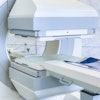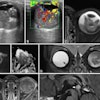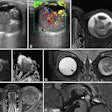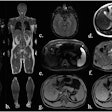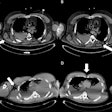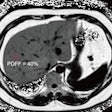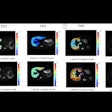
NEW YORK (Reuters Health), Jun 9 - Survivors of childhood cancer face a lifelong increased risk of second primary cancers, according to a report in the June 2 issue of the Journal of the National Cancer Institute.
"Second cancer is likely to be just one of several serious late adverse health effects that are associated with the types of treatments we know today," Dr. Jorgen Olsen told Reuters Health. "A more precise knowledge of the extent and the types of problems encountered as a childhood cancer survivor may be useful in the planning of care of individuals treated for cancer in childhood."
In their report, Olsen, from the Danish Cancer Society, Copenhagen, and colleagues present follow-up data on the incidence of second cancer among 47,697 former childhood cancer patients over the full age range of 0 to 79 years.
"A total of 1,180 asynchronous second primary cancers were observed in 1,088 persons, yielding an overall standardized incidence ratio of 3.3," the researchers report.
The observed incidence for a new primary cancer in these patients was higher than that expected from the national age-, sex-, and calendar time-specific incidence rates of cancer for each age group represented, the researchers note, even for cohort members approaching 70 years of age.
The cumulative risks for a second cancer before the age of 50 years were lowest in the prechemotherapy era (8.6%) and higher in both the first-generation chemotherapy era (12.2%) and combination chemotherapy era (13.3%).
The highest risks of second primary cancers were for tumors of the bone, connective tissue, brain, thyroid, and other endocrine glands, the investigators say. In all these cases, the standardized incidence ratio was more than 5.
"Except for the recommendation to initiate mammography screening from an earlier age than usual among female survivors treated with radiation, we have no specific recommendations," Olsen said. "The physician, however, should be aware that the risk of cancer -- and most likely other chronic diseases -- is increased among individuals who have been treated for cancer during childhood (i.e., during a period of life characterized by growth and maturation)."
J Natl Cancer Inst 2009;101:806-813.
Last Updated: 2009-06-08 12:10:38 -0400 (Reuters Health)
Related Reading
Passport for Care aids follow-up of childhood cancer survivors, April 13, 2009
Copyright © 2009 Reuters Limited. All rights reserved. Republication or redistribution of Reuters content, including by framing or similar means, is expressly prohibited without the prior written consent of Reuters. Reuters shall not be liable for any errors or delays in the content, or for any actions taken in reliance thereon. Reuters and the Reuters sphere logo are registered trademarks and trademarks of the Reuters group of companies around the world.
